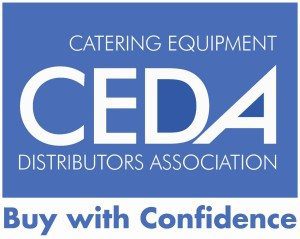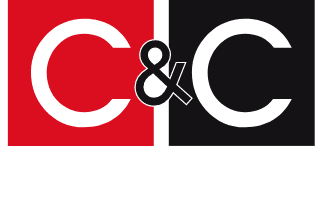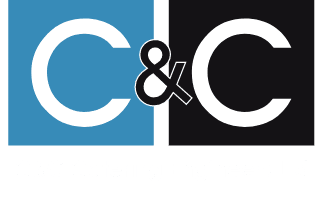 On Wednesday 19th October, CEDA members and partners gathered at The Hellidon Lakes Hotel, Daventry, for the annual CEDA Technical Conference.
On Wednesday 19th October, CEDA members and partners gathered at The Hellidon Lakes Hotel, Daventry, for the annual CEDA Technical Conference.
With a programme developed around the theme of ‘professionalism’, speakers imparted their experience and expertise to delegates in order to help them improve their standards of professionalism and competence in their respective fields.
In his opening speech, John Scott – Chairman of the CEDA Technical Steering Group (TSG) – highlighted the problem of grey areas within industry legislation and guidelines, citing these as one of the main reasons for the disparity in standards of professionalism. Also, as development manager at First Choice Catering Spares, John was keen to stress the importance of training for engineers, staff and customers alike, to raise standards and to educate customers in the standards they should be expecting from their providers. Addressing the whole conference, John encouraged delegates to make use of the brand new training centre at the First Choice Catering Spares HQ in Staffordshire, complete with classroom facilities and wi-fi access as well as a fully functional, plug and play demonstration kitchen.
Next on the stand was Dr Steve Tuckwell, managing director of the Water Regulations Advisory Scheme Ltd (WRAS). Citing guidelines from The Water Supply (Water Fittings) Regulations, Dr Tuckwell pointed out an example of those grey areas that John had alluded to in his speech. According to The Water Supply (Water Fittings) Regulations, installation of plumbing systems must be carried out ‘in a workmanlike manner’ – decoded by Dr Tuckwell, this basically means that installations must meet appropriate British Standards. By visiting the WRAS website, plumbers can gain access to a wealth of literature that explains these British Standards as well as a directory of approved WRAS fittings and materials that are of a suitable standard to meet installation regulations. Dr Tuckwell also revealed plans being put in motion by Water Suppliers and WRAS for a Water Safe scheme, much like the Gas Safe mark of competence, that has gained support from the government and trading standards.
Bringing the conference back to the issue of engineer training, Peter Kay – former managing director of CEDA – revealed an initiative in which CESA has also agreed to take part, that will promote the engineers of CEDA and CESA members as the first port of call for end users. Currently, there is no legal requirement for an engineer to have an electrical qualification or even to have received electrical training. The Register of Qualified Catering Equipment Engineers will be the only register of qualified engineers in the industry and it is hoped that end users will, in the future, look directly towards the register to ensure they are employing the most professional and competent engineers for the maintenance and installation of their catering equipment.
From the Gas Safe Register, Gary Russell – regional investigation officer – and Jamie Cooper – technical and registrations manager – outlined the dire consequences that occur when acceptable levels of professionalism and competence are not practiced. Working closely alongside enforcement bodies (HSE, EHO, Trading Standards and LABC) and advising their officers on competence issues, the Gas Safe Register is working hard to raise the professionalism and competence of gas engineers’ installations.
Kevin Davis, who plays a key role on the CEDA TSG, heads up projects to increase awareness of the legal implications of gas safety inspections for commercial catering equipment. Kevin presented to delegates a joint project by both CEDA and CESA that is set to eradicate the problem of complacency, both from customers and engineers, in maintaining gas equipment. It is hoped that the ‘CEDA/CESA Gas Safety Inspection Sheet’ will become the standard document for the industry, making it easy for both the engineer and the customer to prove that gas equipment is being maintained to a professional and competent standard. Or, in the case that something should go wrong, engineers and customers can prove – by providing this sheet and its accompanying certificate – that they have done everything within their power to ‘maintain equipment in accordance with manufacturers instructions.’
Delegates were also privy to the insight of Andrew Griffiths, principal policy officer from the Chartered Institute of Environmental Health. Defining the difference between the buzz-words of the day – competence and professionalism – Andrew explained that to be competent is to know the law, to understand it and to apply it properly. He also underlined the importance of knowing ones own limitations, suggesting that consultants should give proportionate advice to businesses and regulators so that improving standards is seen as a possible, rather than impossible, task.
Steve Debeger, chairman of the domestic appliance service association and former Electrolux service manager, ended the speaker sessions by raising some interesting questions on the common problems faced by both the domestic and commercial appliance industry reflecting much of the cross over that had already been emphasised by Dr Steve Tuckwell and Gary Russell in their examples of bad practice.
The conference was hosted by Richard West who had impressed delegates back in 2008 at the annual CEDA conference, so much so in fact that it only seemed right for such a skilled moderator to lead a day focused on professionalism. CEDA would also like to thank the speakers for their invaluable advice and information and the delegates for continually spurring these important industry topics.
 On Wednesday 19th October, CEDA members and partners gathered at The Hellidon Lakes Hotel, Daventry, for the annual CEDA Technical Conference.
On Wednesday 19th October, CEDA members and partners gathered at The Hellidon Lakes Hotel, Daventry, for the annual CEDA Technical Conference.
With a programme developed around the theme of ‘professionalism’, speakers imparted their experience and expertise to delegates in order to help them improve their standards of professionalism and competence in their respective fields.
In his opening speech, John Scott – Chairman of the CEDA Technical Steering Group (TSG) – highlighted the problem of grey areas within industry legislation and guidelines, citing these as one of the main reasons for the disparity in standards of professionalism. Also, as development manager at First Choice Catering Spares, John was keen to stress the importance of training for engineers, staff and customers alike, to raise standards and to educate customers in the standards they should be expecting from their providers. Addressing the whole conference, John encouraged delegates to make use of the brand new training centre at the First Choice Catering Spares HQ in Staffordshire, complete with classroom facilities and wi-fi access as well as a fully functional, plug and play demonstration kitchen.
Next on the stand was Dr Steve Tuckwell, managing director of the Water Regulations Advisory Scheme Ltd (WRAS). Citing guidelines from The Water Supply (Water Fittings) Regulations, Dr Tuckwell pointed out an example of those grey areas that John had alluded to in his speech. According to The Water Supply (Water Fittings) Regulations, installation of plumbing systems must be carried out ‘in a workmanlike manner’ – decoded by Dr Tuckwell, this basically means that installations must meet appropriate British Standards. By visiting the WRAS website, plumbers can gain access to a wealth of literature that explains these British Standards as well as a directory of approved WRAS fittings and materials that are of a suitable standard to meet installation regulations. Dr Tuckwell also revealed plans being put in motion by Water Suppliers and WRAS for a Water Safe scheme, much like the Gas Safe mark of competence, that has gained support from the government and trading standards.
Bringing the conference back to the issue of engineer training, Peter Kay – former managing director of CEDA – revealed an initiative in which CESA has also agreed to take part, that will promote the engineers of CEDA and CESA members as the first port of call for end users. Currently, there is no legal requirement for an engineer to have an electrical qualification or even to have received electrical training. The Register of Qualified Catering Equipment Engineers will be the only register of qualified engineers in the industry and it is hoped that end users will, in the future, look directly towards the register to ensure they are employing the most professional and competent engineers for the maintenance and installation of their catering equipment.
From the Gas Safe Register, Gary Russell – regional investigation officer – and Jamie Cooper – technical and registrations manager – outlined the dire consequences that occur when acceptable levels of professionalism and competence are not practiced. Working closely alongside enforcement bodies (HSE, EHO, Trading Standards and LABC) and advising their officers on competence issues, the Gas Safe Register is working hard to raise the professionalism and competence of gas engineers’ installations.
Kevin Davis, who plays a key role on the CEDA TSG, heads up projects to increase awareness of the legal implications of gas safety inspections for commercial catering equipment. Kevin presented to delegates a joint project by both CEDA and CESA that is set to eradicate the problem of complacency, both from customers and engineers, in maintaining gas equipment. It is hoped that the ‘CEDA/CESA Gas Safety Inspection Sheet’ will become the standard document for the industry, making it easy for both the engineer and the customer to prove that gas equipment is being maintained to a professional and competent standard. Or, in the case that something should go wrong, engineers and customers can prove – by providing this sheet and its accompanying certificate – that they have done everything within their power to ‘maintain equipment in accordance with manufacturers instructions.’
Delegates were also privy to the insight of Andrew Griffiths, principal policy officer from the Chartered Institute of Environmental Health. Defining the difference between the buzz-words of the day – competence and professionalism – Andrew explained that to be competent is to know the law, to understand it and to apply it properly. He also underlined the importance of knowing ones own limitations, suggesting that consultants should give proportionate advice to businesses and regulators so that improving standards is seen as a possible, rather than impossible, task.
Steve Debeger, chairman of the domestic appliance service association and former Electrolux service manager, ended the speaker sessions by raising some interesting questions on the common problems faced by both the domestic and commercial appliance industry reflecting much of the cross over that had already been emphasised by Dr Steve Tuckwell and Gary Russell in their examples of bad practice.
The conference was hosted by Richard West who had impressed delegates back in 2008 at the annual CEDA conference, so much so in fact that it only seemed right for such a skilled moderator to lead a day focused on professionalism. CEDA would also like to thank the speakers for their invaluable advice and information and the delegates for continually spurring these important industry topics.
Get in touch
Head Office
C&C Catering Equipment Limited
Quarry Buildings
Hill Road
Eccleston
Chester
CH4 9HQ
01244 625170
info@cateringequipment.com
Copyright C&C Catering Group | website by CreationADM



